The Integrated Food Security Classification (IPC), a scale used by UN agencies to assess food insecurity, says 70% of people in northern Gaza are suffering from the most severe food shortages, more than three times the 20% threshold considered famine.
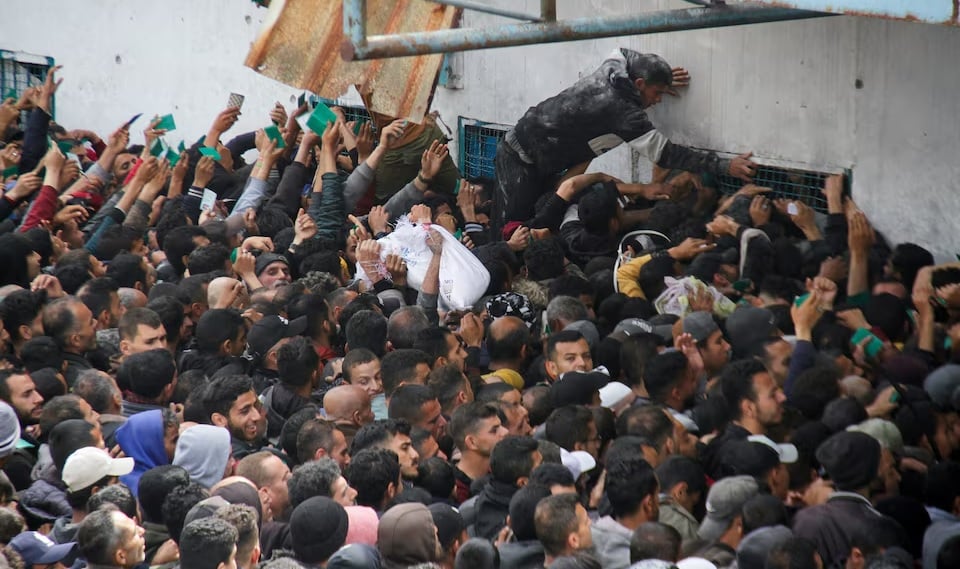
Palestinians scramble to get aid in Gaza City on March 18. Photo: Reuters
"The terrible indictment"
The IPC said it did not have enough data on mortality rates, but estimated people would die at the scale of impending famine, defined as two out of every 10,000 people dying every day from hunger or malnutrition and disease.
Gaza's health ministry said 27 children and three adults had died from malnutrition so far. "The actions needed to prevent famine require an immediate political decision on a ceasefire, along with a significant and immediate increase in humanitarian and commercial access for all Gazans," the IPC said in a statement.
In total, 1.1 million Gazans, about half the population, are facing “catastrophic” food shortages, with some 300,000 people in the areas now at risk of famine-scale deaths.
The prospect of a man-made famine in Gaza has prompted the strongest criticism of Israel from Western allies since it launched its war against Hamas militants in Gaza.
"In Gaza, we are no longer on the brink of famine. We are in a state of famine... Hunger is used as a weapon of war. Israel is causing famine," the European Union's foreign policy chief, Josep Borrell, said at a conference in Brussels on aid to Gaza.
Israeli Foreign Minister Israel Katz responded that Mr Borrell should "stop attacking Israel and recognise our right to self-defence against Hamas' crimes".
UN Secretary-General Antonio Guterres called the IPC report a "horrific indictment" and said Israel must be allowed full and unhindered access to all areas of Gaza.
British Foreign Secretary David Cameron said he would carefully consider the report: "It is clear that the status quo is unsustainable. We need urgent action now to avoid famine."
Israel, which initially allowed aid into Gaza only through two checkpoints on the southern edge of the enclave, has recently opened up land routes as well as allowing sea shipments and airdrops. The first aid boat arrived in Gaza last week.
Aid agencies say they are still unable to receive enough relief supplies or distribute them safely, especially in northern Gaza.
Israel continues to attack
In the ruins of Gaza City, Israeli forces launched a major overnight attack on Al Shifa Hospital. Once the largest hospital in the Gaza Strip, it is now one of the only partially functioning medical facilities in the devastated northern part of the territory.
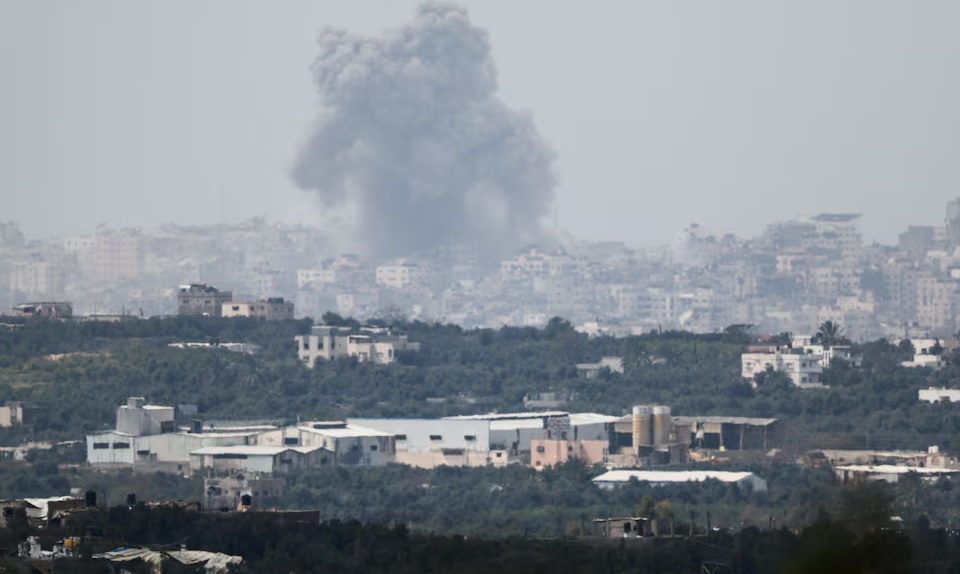
Smoke rises after an explosion in Gaza on March 18, 2024. Photo: Reuters
Israel said it had killed more than 20 Hamas militants, including senior Hamas commander Fayeq al-Mabhouh, in hospital. Hamas said he was a Palestinian police officer tasked with overseeing the protection of aid shipments in Gaza.
Meanwhile, US President Joe Biden warned Israeli Prime Minister Benjamin Netanyahu in a call on Monday that a military operation in Rafah would deepen the chaos in Gaza and the two sides agreed to meet in Washington to discuss the issue.
Mr Netanyahu has said the Israeli army will enter the southern Gaza city of Rafah, where more than half of the territory's 2.3 million Palestinian residents are sheltering from bombs and shells.
Last week, US Senate majority leader Chuck Schumer called on Israelis to vote to replace Netanyahu, saying the prime minister was damaging Israel's international standing by allowing so much suffering in Gaza.
Hoang Anh (according to Reuters)
Source



![[Photo] Prime Minister Pham Minh Chinh and Prime Minister of the Kingdom of Thailand Paetongtarn Shinawatra attend the Vietnam-Thailand Business Forum 2025](https://vphoto.vietnam.vn/thumb/1200x675/vietnam/resource/IMAGE/2025/5/16/1cdfce54d25c48a68ae6fb9204f2171a)




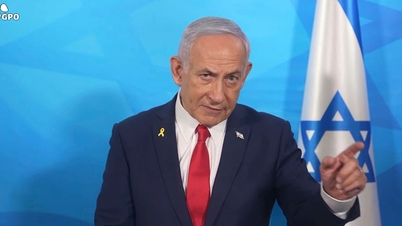

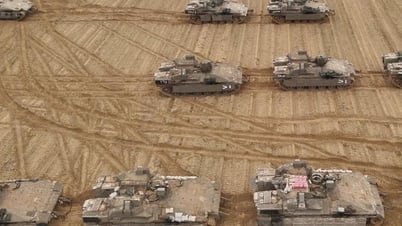
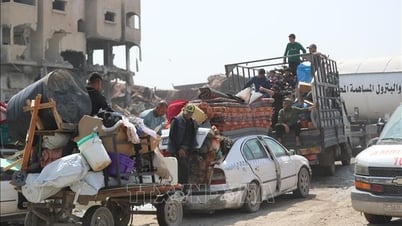

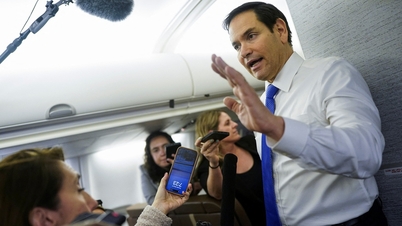

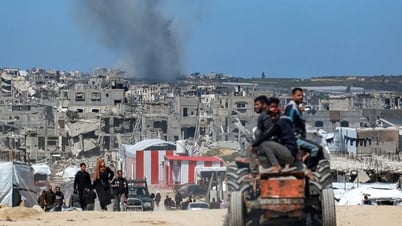




















![[Photo] President Luong Cuong receives Prime Minister of the Kingdom of Thailand Paetongtarn Shinawatra](https://vphoto.vietnam.vn/thumb/1200x675/vietnam/resource/IMAGE/2025/5/16/52c73b27198a4e12bd6a903d1c218846)
















































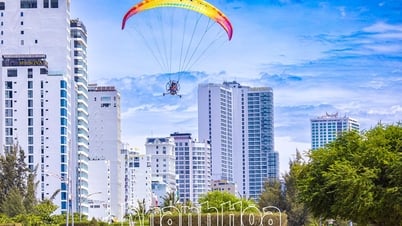










Comment (0)